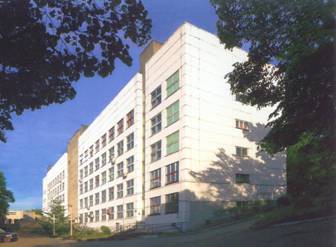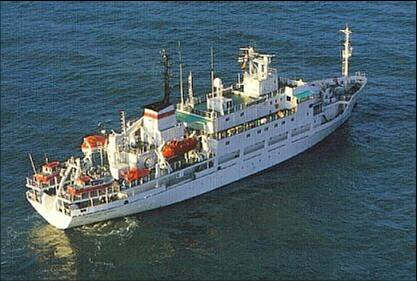About Institute
 G.B. Elyakov Pacific Institute of Bioorganic Chemistry (PIBOC) is a research Institute within the Far-Eastern Branch of the Russian Academy of Sciences (RAS). The Institute was founded in 1964 for chemical and biochemical research of the unique Far-Eastern plants and biological resources of the World Ocean. Investigation of marine biological objects (including microorganism and fungi)) are now a main trend of the research.
G.B. Elyakov Pacific Institute of Bioorganic Chemistry (PIBOC) is a research Institute within the Far-Eastern Branch of the Russian Academy of Sciences (RAS). The Institute was founded in 1964 for chemical and biochemical research of the unique Far-Eastern plants and biological resources of the World Ocean. Investigation of marine biological objects (including microorganism and fungi)) are now a main trend of the research.
Professor, DSc., Full Member of the Russian Academy of Sciences (Academician) Georgy B. Elyakov (1929-2005) was founder and Director of the Institute during 38 years. In 2011 PIBOC was named in honour of its founder. Academician Valentin Stonik is now Director of PIBOC.
A total staff of the Institute numbers 344 persons. Scientific staff is 154 scientists including two Full Members of RAS, two Corresponding Members of RAS, 29 DSc, and 98 PhD., who are working at scientific groups. The main office departments and laboratories are located in the Academic Township of the Far-Easter Branch of RAS in Vladivostok - "Akademgorodok". In addition, we have a Marine Experimental Station at Trinity Bay about 240 km to the south from Vladivostok. The Station has various facilities for research: equipped research laboratories, boats, and pier. High qualified divers provide scientists with biological raw materials.
The Institute carries out scientific investigations in bioorganic chemistry, molecular immunology, molecular biology, genetic engineering, biotechnology, and related fields. The Institute's current research in chemistry of secondary metabolites of marine invertebrates and marine microorganisms as well as in enzymology, molecular immunology, and genetic engineering are of special scientific value.
The results of fundamental research create a basis for developing marine biotechnology. The wide search for and screening of strains-producers of physiologically active compounds from marine microorganisms (including tropical ones) are of paramount importance and high practical value. The Institute's collection of marine microorganisms (KMM) contains several thousand strains of eubacteria, actynomyces, mycellar fungi and yeast from all over the world.
The study of marine organisms has important practical goal to create new preparations for medical application, agriculture, microbiology, and biotechnology. Information about chemical and biological activity or technical value of the substances provides a basis for developing rational and complex use of biological resources, for creating new non-waste technologies in fishery and aquaculture processing.
The methods to obtain triterpene and steroid glycosides with strong antifungal and immunostimulatory activities from echinoderms were worked out at the Institute. Discovery of antioxidant activity of sea urchins pigments can also serve as an example, confirming a great potential for using these preparations in medicine and agriculture. New polysaccharides obtained from algae and invertebrates: zosterin (pectin from sea-grass, with gelling properties and the ability to bind ions of heavy metals); mytilan (an immunomodulator used in perfumery) and other preparations, as well as enzymes (carbohydrases, proteinases, nucleases) for genetic engineering, are among the Institute's valuable achievements. Investigations of enzymes from marine invertebrates are highly successful. Some of these enzymes are suitable tools for the investigation of carbohydrate, proteins and nucleic acids structures. Processes of enzymatic degradation of biopolymers are studied by methods of mathematical modelling. New approaches are being developed in the field of energy minimization and molecular dynamics in internal coordinates for biopolymers and their complexes.
The Institute constructed Experimental plant to develop technologies for the large-scale industrial production of new medicines.
 A research vessel "Akademik Oparin" of 2600 ton displacement has more than 150 m2 of laboratory space; and is equipped with the latest electronic navigation instruments and a full complex of scuba diving equipment, including special boats and the dredging gear used for collecting marine organisms. Aboard the vessel there are eleven laboratories with vacuum system and devices for liquid chromatography, GC-MS, optical spectrometers, as well as a vivarium, microbiological equipment, etc.
A research vessel "Akademik Oparin" of 2600 ton displacement has more than 150 m2 of laboratory space; and is equipped with the latest electronic navigation instruments and a full complex of scuba diving equipment, including special boats and the dredging gear used for collecting marine organisms. Aboard the vessel there are eleven laboratories with vacuum system and devices for liquid chromatography, GC-MS, optical spectrometers, as well as a vivarium, microbiological equipment, etc.
The activities of PIBOC are coordinated with related Institutes in the country.
The Institute participates in international collaboration and has good contacts and official agreements for joint scientific research with the colleagues in Australia, China, France, Italy, Japan, Republic of Korea, Spain, USA, Vietnam, and other countries.
